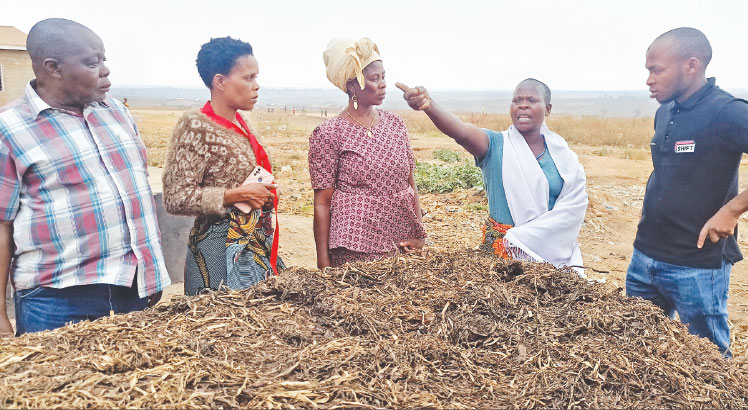Turning trash into treasure
Nestled in the capital city, Lilongwe, Chinsapo Market has long been a vibrant trading centre, drawing vendors from nearby locations to sell their agricultural bounty.
Yet, beneath the hustle and bustle, unmanaged waste was a looming threat to public health and the livelihoods of its inhabitants.
However, today, waste is carefully collected, sorted and recycled.
This is part of the Shift Project, a youth-driven initiative supported by Save the Children through the National Youth Network on Climate Change (NYNCC).
Comprising 16 young people aged 18 to 25, the campaign targets Chinsapo Market, which serves about 260 000 people.
It involves influential voices from the market and surrounding community, artistic expression and commitment to sustainable environmental management, including responsible waste handling.
With hundreds of sellers and buyers converging at the produce market daily,.

Now, people visiting the produce market no longer witness the festering gaps in waste management threatening the very heart of Chinsapo.
Where garbage was scattered all over the place is now an organised waste collection and recycling system.
From informal market influencers to minibus call boys, traditional leaders to musicians, the campaign deploys captivating poetry, drama and music to amplify the call for mindset change.
Uppeh Asedi, one of the brains behind the project, explains: “We wanted to address a pressing environmental issue, which is why we chose waste management.
“Observing Lilongwe’s inadequate waste management infrastructure, we selected Chinsapo Market as our model site.”
The Shifters, together with market committees and community structures, met with district and city councils to share their vision amid a shortage of cleaning tools and a misconception that waste management is solely the responsibility of government authorities.
Their persistent emphasis on shared responsibility and the provision of essential tools paid off.
Chinsapo Market chairperson Paipi Black applauds the Shifters for changing the way people view refuse management:
“They provided us with chlorine, gumboots, bins, sanitisers and other essential equipment to manage market waste effectively. With adequate tools, there are no excuses for a dirty market,” he states.
The market now looks clean as they collectively sweep refuse to a designated dumpsite where 50 women turn it into manure for barren fields.
Every day, Agnes Mchecheta and her group arrive at the market with wheelbarrows and bins, carefully sorting plastics from agricultural refuse.
“We’ve discovered wealth in the things people discarded,” she brags. “Cabbage and potato refuse even fuel our biogas production while the rest becomes valuable manure.”
Eunice Kayaka, sanitation secretary for Chinsapo 1 Ward, is grateful for the training offered by the Shifters.
“We now educate our community on responsible waste management practices. Unlike in the past, Chinsapo looks clean,” she said.
Group village head Chinsapo commends the Shift Project for turning Chinsapo into a clean business hub where waste begets manure for surrounding fields where crop yields keep dwindling due to soil fertility loss.
“The future looks brighter,” she says. “We need to replicate the project in smaller markets throughout the area.”
Lilongwe City mayor Richard Banda says with sustainable waste management, everyone benefits because it is a value-driven process.
“The Shifters have achieved a great deal. Now, it’s time to extend their transformative efforts to other areas, benefiting even more residents,” he says.
In a world where profit-makers overlook the importance of sustainable waste and environmental management, Chinsapo Market illustrates what can be achieved when passionate young minds take the lead.
Says Save the Children programme manager Esther Gama: “We have witnessed the power of empowered young leaders driving change in waste management.
“Their dedication has ignited a spirit of community responsibility. This is a testimony to what can be achieved when we invest in the energy and ideas of our youth.”





